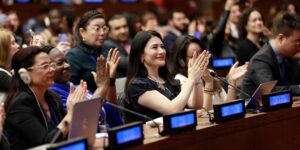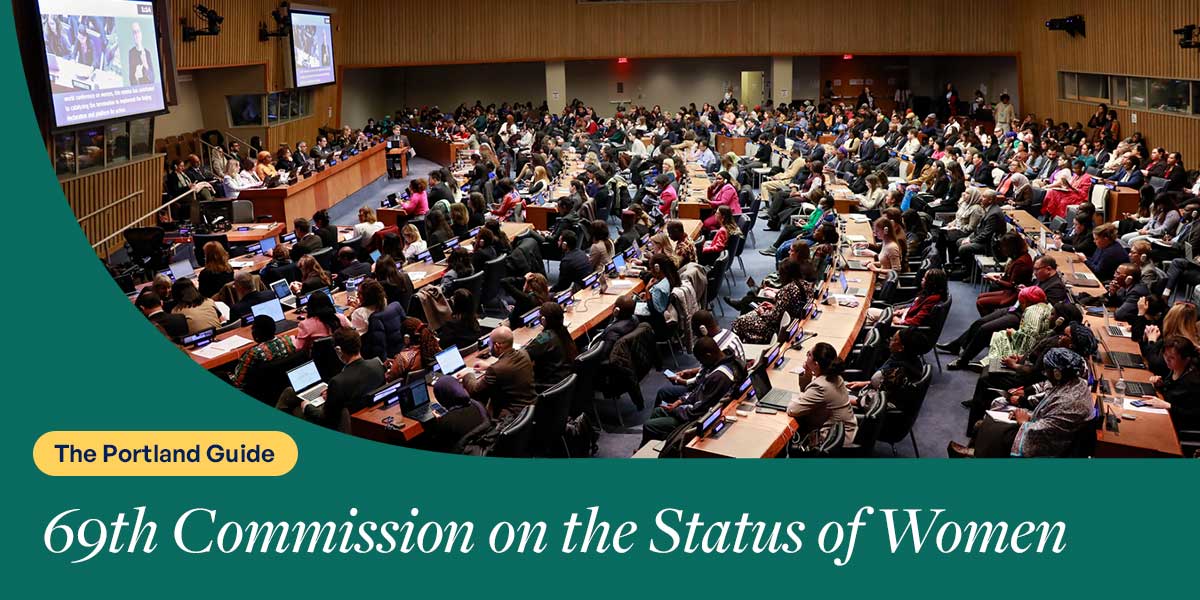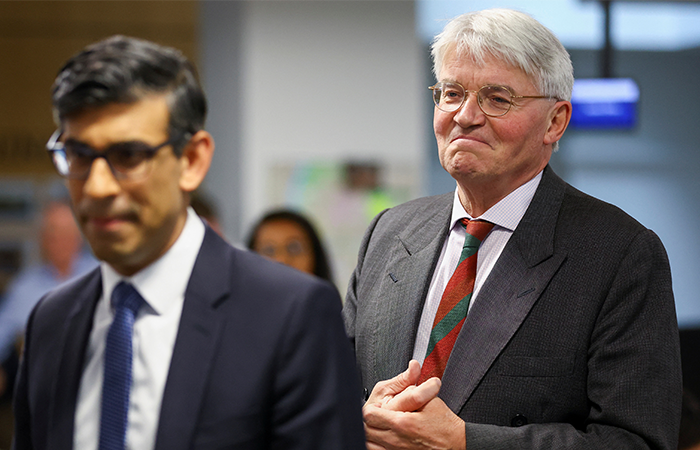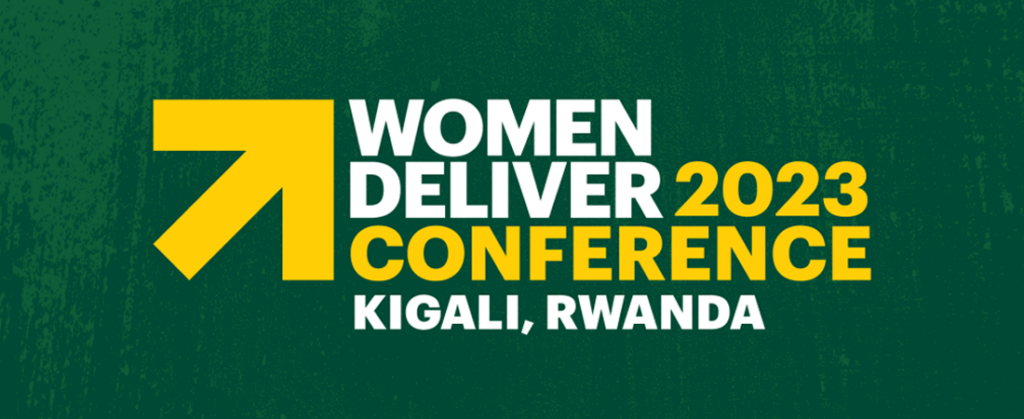Hello and welcome to Portland’s analysis of this year’s Commission on the Status of Women (CSW69), brought to you by our team of international development and gender equality experts.
CSW69, despite the bleakest outlook for gender equity progress in recent years, can be seen as a qualified success. On the surface, the conference delivered headline resolutions that reflected a recommitment from all UN member states to advance gender equity. However, beneath the headline announcements, tense exchanges and pointed promises revealed the underlying fault lines facing the gender equity movement in 2025.

Setting the stage
This year’s annual Commission on the Status of Women marked a significant moment in the ongoing evaluation of the Beijing Declaration and Platform for Action, 30 years after its initial implementation. The gathering of delegates served not only as a reflection on the progress achieved thus far but also as a platform for identifying critical areas requiring further acceleration to meet the commitments set forth. The review focused on six strategic pillars aimed at advancing gender equality on topics including the digital divide, care systems, gender-based violence, decision-making processes, conflict resolution, and climate justice.
Despite this key focus, the controversial election of Saudi Arabia as chair of the Commission threatened to overshadow the session, given the country’s poor track record on women’s rights. Critics argued that Saudi Arabia’s leadership contradicted the Commission’s core mission of promoting gender equality and women’s empowerment, sending a troubling message that the UN might overlook such issues for political reasons. There were also concerns that the UN’s commitment to women’s rights could be compromised. Commenting on the move, Fernanda Doz Costa, Director at Amnesty International, said: “Saudi Arabia, the chair of this year’s Commission of Status of Women must also set a positive example for other states by protecting and promoting the work of women human rights defenders instead of silencing them.”

Key themes
CSW69 convened against the backdrop of a gloomy global outlook on gender equality and a fracturing of consensus on advancing women’s rights. In fact, a UN Women report published earlier this month showed that 1 in 4 countries reported a backlash against women’s rights in 2024, signalling an alarming trend. This includes growing opposition to gender equality programs within UN member states, such as restrictions on reproductive healthcare in Poland, the continued enforcement of Saudi Arabia’s restrictive guardianship system, and the stark impact of US aid cuts to programs supporting women’s health, education, and empowerment globally.
Much of the discourse at CSW69 highlighted progress made in recent decades in areas such as reproductive health, gender-based violence, and economic participation but warned that hard-won gains could soon be lost. They cited the growing resistance to these gains, with conservative movements and political shifts undermining progress on gender equality. Bleakly remarking on this at the opening session, UN Secretary-General Antonio Guterres, said: “The poison of patriarchy is back — and it is back with a vengeance: slamming the brakes on action, tearing up progress, and mutating into new and dangerous forms.”
Other attendees called out the “chicken and egg” situation, where rising global instability is making humanitarian needs worse, particularly the growing threats to the safety of women and girls. The collapse of the Israel-Gaza ceasefire during the summit really brought this into sharp focus, with UNFPA reporting that the progress made on women’s access to reproductive health services had been essentially undone with the end of the ceasefire. The issue of women’s role in conflict resolution also came to the forefront with delegates reporting only 10% of peace negotiators are women. CSW69 urged the international community to make women a priority in peace-building efforts —especially in conflict zones where women’s rights are directly threatened.
Outcomes
Early in the conference, all 193 UN member nations signed a political declaration pledging to accelerate efforts toward gender equality. The UN Economic and Social Council’s declaration highlighted the importance of involving men and boys as key partners in achieving equality and acknowledged that, after 30 years, no country has fully reached gender equality. The declaration commits to intensifying action to achieve the original implementation of the Beijing Declaration and Platform for Action, and to achieve gender equality and the empowerment of all women and girls.
The conference was not without its challenges, notably, US representative Jonathan Shirer claimed the political declaration failed to include clear language affirming that “women are biologically female and men are biologically male.” The US also signalled its intention to use its financial and diplomatic influence to reverse several progressive UN policies, including those related to sexual and reproductive health and rights, as well as gender parity quotas in UN institutions. Yet, by the end of the session, there was relief that the US delegation did not block the adoption of the political declaration reaffirming the Beijing Declaration and Platform for Action. Despite reported objections from Argentina, delegates also successfully overcame obstacles to adopt a program of priorities aimed at furthering gender equality in the years ahead.
All in all, there appeared to be consistent fault lines at the conferences on intersectional issues, including women’s rights, trans rights, and climate change. Critics like Women Deliver pointed out that the conference missed the mark on addressing the gendered impacts of the climate crisis, whilst several delegations were frustrated that the final declaration didn’t explicitly mention women’s sexual and reproductive health and rights. Although the US ultimately supported the declaration, the promise of further budget cuts threatens to undermine progress here. Meanwhile, the main pledge lacked a commitment to financing, leaving the next, more significant hurdle of securing necessary funding for these initiatives unresolved.
Further reading






